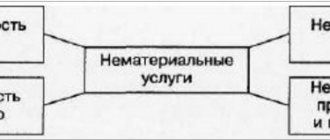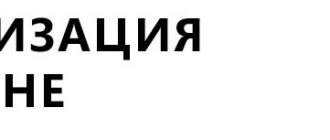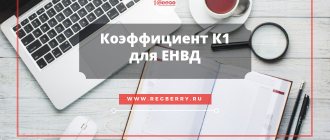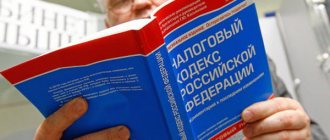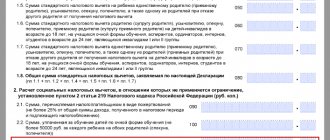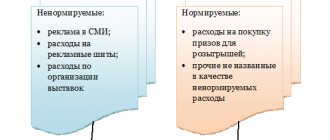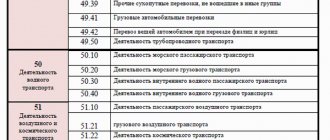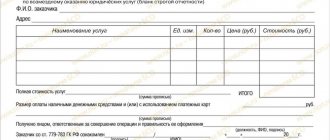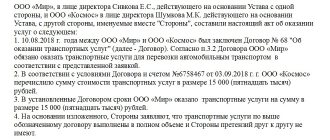Who is the VAT payer on educational services?
The field of educational services involves mostly non-profit organizations operating on the basis of licenses confirming their right to carry out educational activities.
At the same time, for many types of such services they have benefits and are exempt from the obligation to charge VAT on them. If an organization under the general taxation regime provides educational services, but is not created as a non-profit organization whose main activity is educational, then it does not have benefits for the provision of these services and the tax is calculated in the general manner.
ConsultantPlus experts explained in detail how to calculate and reflect VAT in accounting. If you do not have access to the K+ system, get a trial demo access for free.
Sales of goods in an educational institution
Quite often, retail outlets selling food, stationery, etc. are located on the premises of universities, technical schools and other educational institutions. The question arises: is such activity subject to VAT? The answer to this question depends on several factors:
- If the owner of a retail outlet is a commercial organization, then the sale of goods is subject to VAT in the general manner. For example, Lilia LLC, which operates in the catering industry, opened a buffet in PTU-14. VAT should be charged on the cost of goods sold by the buffet.
- If goods are sold directly by an educational organization, then their cost is exempt from VAT if two conditions are met simultaneously:
- educational institutions sell food products;
- The organization independently produced the products it sold.
As we can see, educational institutions may not pay VAT only on products of their own production that are sold directly on the premises of the organization. If purchased goods are sold in the university canteen, they are subject to VAT in accordance with the general procedure.
VAT on the provision of educational services by non-profit organizations
In accordance with sub. 14 paragraph 2 art. 149 of the Tax Code of the Russian Federation, educational services provided by non-profit organizations are not subject to VAT. Moreover, educational services in this context are considered to be:
- General education programs.
- Educational vocational training programs.
- Training for certain professions.
- Educational process programs.
- Additional educational services corresponding to those specified in the license.
Thus, in order to take advantage of the right to be exempt from VAT, such an organization must have a license to provide the above services, and in the case of providing services for additional education and professional training, the license must specify the focus of education. At the same time, services provided by educational organizations in the capacity of consulting, as well as services for the rental of premises by them, are subject to VAT in the generally established manner.
It should be remembered that when simultaneously carrying out transactions subject to VAT and not subject to VAT, separate accounting should be maintained.
See more details in the material “How is separate accounting for VAT carried out (principles and methods)?” .
Blog
It is very common in practice that accountants do not understand the essence of the “VAT circuit in nature”; we will help you understand the nuances of accounting in this article.
VAT – value added tax. The tax amount is calculated as follows:
Cost + Trade margin + Excise tax = Tax base for calculating VAT
Tax amount = Tax base for VAT calculation * Rate (10%, 20%)
What transactions are subject to VAT? If your organization is on the General Taxation System, then you automatically become a VAT payer. In this case, you can obtain an exemption from paying this tax if two conditions are simultaneously met (Article 145 of the Tax Code of the Russian Federation):
- Revenue for the quarter does not exceed 1 million rubles,
- The company does not work with excisable goods
Related course
Accounting and tax accounting for beginners + 1C: Accounting 8.3
Find out more
The organization always uses “slang” concepts for VAT - this is input VAT and VAT payable.
“Input” VAT is the tax that we will pay to the supplier of goods (again, if he works with VAT), since the amount of tax is included in the purchase price, by this amount we can reduce the final tax payable.
Those. if we purchase a batch of goods for 12,000 rubles, incl. VAT 20% means that the cost of goods will be 10,000 rubles, and the tax amount will be 2,000 rubles. The postings for the receipt of goods received will be as follows:
Invoice from the supplier:
Dt 41.01 Kt 60.01 – 10,000 goods were received into the warehouse at cost
Dt 19.03 Kt 60.01 – 2,000 – VAT from the supplier is allocated
If there is a correctly executed invoice, the accountant will make the following entry:
Dt 68.02 Kt 19.03 – 2,000 – VAT is deductible
When selling this product to the buyer, we issue a consignment note:
Dt 90.02 Kt 41.01 – 10,000 – the cost of goods received is written off
Dt 62.01 Kt 90.01 – Sales price of goods, let’s say 18,000
We issue an invoice :
Dt 90.03 Kt 68.02 – 3,000 – calculated VAT payable (18000*20/120)
In total, if there are no more sales by the end of the quarter, our organization will have to pay VAT to the budget: 3000-2000 = 1000 rubles by the 25th day of the month following the quarter.
Of course, there are a lot of nuances regarding VAT accounting, do you have any questions? Call +7(391) 287-7-287. We'll help. / “Accounting encyclopedia “Profirosta” @2017 10.22.2017
Information on the page is searched for by the following queries: Accountant courses in Krasnoyarsk, Accounting courses in Krasnoyarsk, Accountant courses for beginners, 1C: Accounting courses, Distance learning, Accountant training, Training courses Salaries and personnel, Advanced training for accountants, Accounting for beginners Accounting services, VAT declaration, Profit declaration, Accounting, Tax reporting, Accounting services Krasnoyarsk, Internal audit, OSN reporting, Statistics reporting, Pension Fund reporting, Accounting services, Outsourcing, UTII reporting, Bookkeeping, Accounting support, Provision of accounting services services, Assistance to an accountant, Reporting via the Internet, Drawing up declarations, Need an accountant, Accounting policy, Registration of individual entrepreneurs and LLCs, Individual entrepreneur taxes, 3-NDFL, Accounting organization
VAT for the provision of educational services by commercial organizations or individual entrepreneurs
Educational services provided by commercial organizations or individual entrepreneurs are subject to VAT in accordance with clause 3 of Art. 164 of the Tax Code of the Russian Federation at a rate of 20%, and there are no benefits or features of tax calculation for them for this type of service. An exception may be taxpayers who apply a special taxation regime (STS), in which they do not have the obligation to calculate and pay VAT.
According to sub. 3 clause 1.1 art. 148 of the Tax Code of the Russian Federation, commercial organizations will also not pay VAT if a Russian organization provides training outside the territory of the Russian Federation. This position is confirmed by the explanations of the Ministry of Finance in letter dated December 5, 2011 No. 03-07-08/342.
VAT benefits regardless of the type of activity
To begin with, let’s consider the norm provided for in subclause 4.1 of clause 2 of Article 146 of the Tax Code of the Russian Federation, which came into force on January 1, 2012.
According to this norm, “the performance of work (provision of services) by state institutions, as well as budgetary and autonomous institutions within the framework of a state (municipal) assignment, the source of financial support of which is a subsidy from the corresponding budget of the budgetary system of the Russian Federation,” is not recognized as subject to VAT. Thus, in order to apply “preferential” taxation in accordance with subclause 4.1 of clause 2 of Article 146 of the Tax Code of the Russian Federation, the institution must be state-owned or the following conditions must be met at the same time:
— the institution must have budgetary or autonomous status;
— the institution must provide services within the framework of a state (municipal) assignment, the source of financial support for which is a subsidy from the budget.
Moreover, in 2013, educational institutions must submit updated VAT returns for 2011, since Federal Law No. 39-FZ of April 5, 2013 extended the validity of the norm in question to legal relations that arose from January 1, 2011.
Results
VAT on educational services is calculated and paid in accordance with the generally established procedure, taking into account the norms of the Tax Code of the Russian Federation.
However, if these services are provided by a non-profit organization that has the appropriate licenses for this, and the services are not of a consulting nature, then the taxpayer has the right not to pay VAT on these services. Commercial organizations and individual entrepreneurs have an exemption from taxation on educational services only if they use the simplified tax system or when conducting training outside the Russian Federation. You can find more complete information on the topic in ConsultantPlus. Free trial access to the system for 2 days.
Special cases in questions and answers
Question No. 1. Accrual of VAT on the cost of services of non-state educational institutions Factor Academy is a non-profit organization that, as part of its activities, implements basic and additional educational programs. "Factor" does not have a state license and provides educational services as a private educational institution. Is VAT subject to charge?
Despite the fact that Factor is a non-state educational institution, the academy has the right to use the VAT tax benefit. The main criterion in this case is the following: “Factor” is a non-profit organization that implements educational programs.
Question No. 2. VAT on testing and knowledge testing services. The State Linguistic Institute (GLI) annually conducts tests to test knowledge of the French language for everyone. Based on the test results, GLI issues a certificate. Knowledge testing is carried out on a paid basis. Does GLI have the right to take advantage of the VAT tax benefit for this type of service?
Only services for the implementation of educational and training programs are exempt from VAT. Since testing for knowledge of the French language is a test of knowledge (GLI does not pre-train test takers), VAT should be charged on these services in the general manner.
Question No. 3. VAT on sales of food products to other educational institutions. There are two educational institutions in the building at 15 Lenina Ave.:
- on the ground floor there is an art school for schoolchildren;
- on the second floor there is a music school.
In the hall of the building there is a canteen of the music school, where food products of its own production are sold. Some of the food prepared in the kitchen is sold to the art school's cafeteria. Are goods sold by a music school subject to VAT?
Sales of food products produced in the canteen of a music school are exempt from VAT. This applies to both dishes sold in the canteen and dishes sold to the art school. The music school has the right to take advantage of the benefit based on the provisions of Art. 149 NK.
What transactions are exempt from VAT?
An educational institution has the right to take advantage of tax benefits in the following areas of activity:
- general educational services. This category includes services provided by schools and preschool institutions within the framework of approved government programs. If a specialized educational institution (gymnasium, sports school, etc.) implements additional educational programs developed independently, then such activities are also exempt from VAT;
- services of universities, technical schools, vocational schools, etc. Vocational training services provided by higher education institutions, as well as institutions of secondary specialized education, are not subject to VAT. Similar to the situation with preschool and secondary education, services of both basic and additional (special) programs are provided with benefits;
- educational activities in specialized clubs and sections. If a sports (art, music) school operates on a paid basis, but does not distribute profits among participants, but uses it to meet the needs of the organization, the services provided by this institution are not subject to VAT;
- vocational training services for various fields of activity. If, on a non-commercial basis, an institution provides services for conducting seminars, trainings, and advanced training courses in various areas, then such activities are exempt from VAT.
Let us note that an important condition for obtaining a tax benefit is that the educational institution has a license to provide certain services.
Accounting entries for accounting
Let us examine the accounting procedure for the sale of food products in the cafeteria of an educational institution.
Example No. 2. On 07/23/16, the buffet of the Economic Lyceum No. 1 received a batch of 120 “Start” chocolate bars. The cost of the batch is 2,760 rubles, VAT 421 rubles. The receipt of goods is reflected in the accounting of Economic Lyceum No. 1 with the following entries:
| Debit | Credit | Description | Sum |
| 41 | 60 | A batch of “Start” bars has arrived at the warehouse of Economic Lyceum No. 1 (RUB 2,760 – RUB 421) | RUB 2,339 |
| 19 | 60 | The amount of VAT on the cost of the bars has been allocated | 421 rub. |
| 60 | 51 | The cost of purchased Start bars was paid to the supplier | RUB 2,760 |
| 68 VAT | 19 | VAT is accepted for deduction | 421 rub. |
In April 2021, a batch of bars was sold in the buffet of the Economic Lyceum No. 1 at a price of 38 rubles. a piece. Upon the fact of sale, the accountant of Economic Lyceum No. 1 made the following notes:
| Debit | Credit | Description | Sum |
| 50 | 90 Buffet revenue | Revenue from sales of Start bars is reflected (RUB 38 * 120 pcs.) | RUB 4,560 |
| 90 VAT | 68 VAT | VAT on sales allocated | 696 rub. |
| 90 Cost of goods sold in the buffet | 41 | The cost of bars sold is reflected | RUB 2,339 |
Tax accounting
If an educational organization, in addition to transactions subject to VAT, carries out transactions that are not subject to taxation (exempt from taxation), it is necessary to organize their separate accounting. This is the requirement of paragraph 4 of Article 149 and paragraph 4 of Article 170 of the Tax Code of the Russian Federation. Separate accounting is maintained:
– at the cost of shipped goods (works, services, property rights), taxable and exempt from taxation;
– according to the amounts of input VAT included in the cost of goods (work, services, property rights) acquired to perform taxable and tax-exempt transactions (separate accounting of input VAT).
Separate accounting of input VAT is necessary due to the fact that input tax on goods (works, services, property rights) used to perform taxable transactions is accepted for deduction (clause 2 of Article 171 of the Tax Code of the Russian Federation). And for transactions exempt from taxation, input VAT must be included in the cost of the purchased goods (work, services, property rights) (subclause 1, clause 2, article 170 of the Tax Code of the Russian Federation).
There is no specific methodology for maintaining separate accounting of transactions subject to VAT and exempt from taxation in the Tax Code of the Russian Federation. Therefore, an educational organization can maintain separate accounting in any order that allows differentiating between taxable and VAT-exempt transactions.
For example, accounting for taxable and tax-exempt transactions can be kept in subaccounts specially opened for sales accounts. You can also use analytical accounting data (tables, certificates, etc.) or information from the journal of issued invoices and the sales book.
The chosen procedure for maintaining separate accounting of taxable and tax-exempt transactions must be fixed in the accounting policy for tax purposes.
It is possible not to keep separate records of input VAT only in one case: if for the quarter the share of expenses for the acquisition, production and (or) sale of goods (work, services, property rights) exempt from VAT does not exceed 5 percent of the total acquisition expenses, production and (or) sale of goods (work, services), property rights. Then the input VAT presented by suppliers in this quarter can be deducted (paragraph 9, paragraph 4, article 170 of the Tax Code of the Russian Federation).
Important to remember
In terms of tax accounting, the institution must develop an accounting policy for tax purposes, establishing in it the procedure for maintaining separate VAT accounting and the registers in which separate accounting data is recorded.
